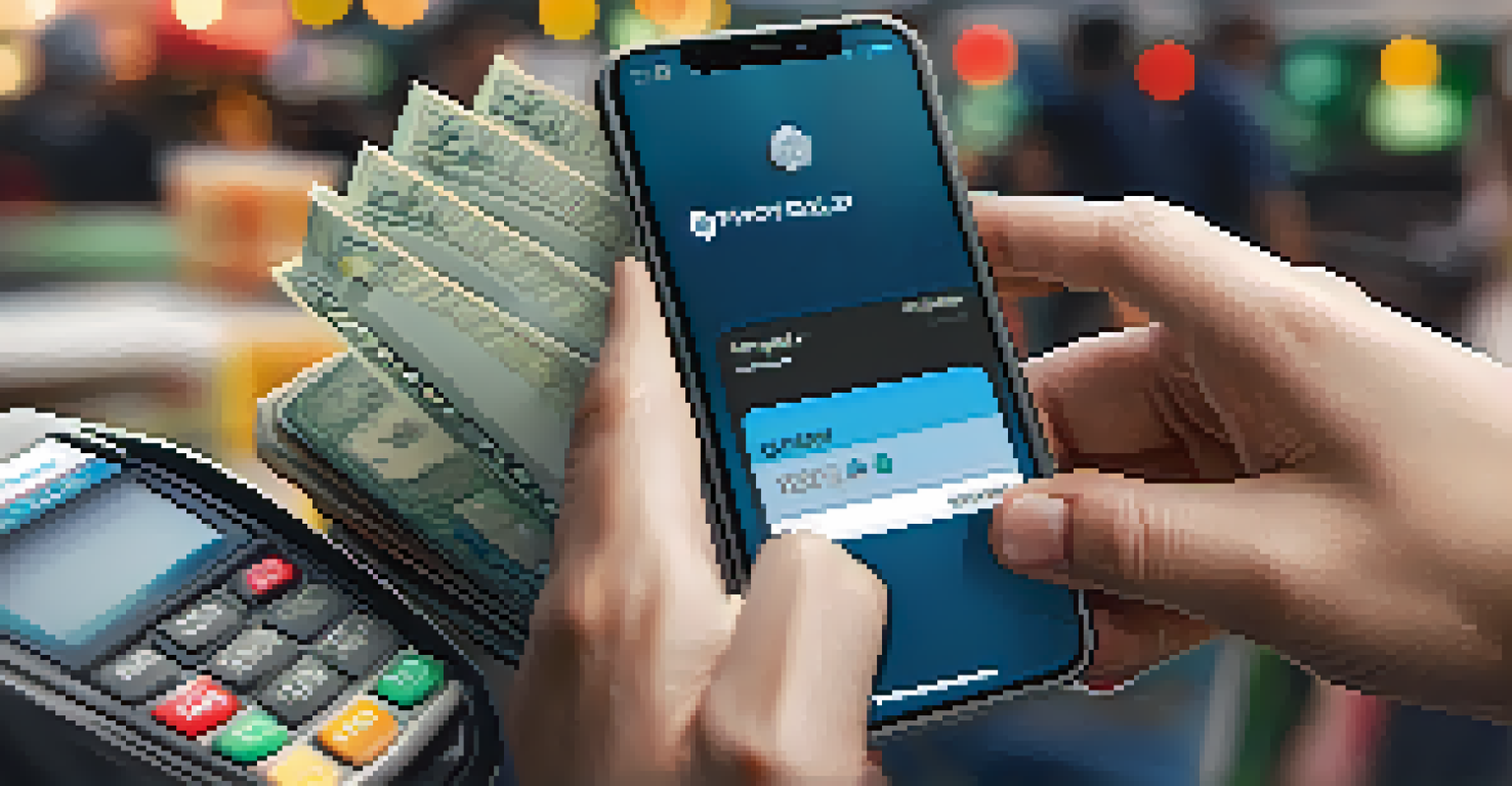How Cryptocurrency Empowers the Unbanked Population Globally

Understanding the Unbanked Population and Their Challenges
The term 'unbanked' refers to individuals who do not have access to traditional banking services. This situation often affects those living in remote areas or in developing countries, where banks are scarce or too costly to access. Without a bank account, these individuals face significant barriers to savings, loans, and other financial services that many of us take for granted.
The future of banking is not just about providing financial services, but about creating a more inclusive financial ecosystem for all.
For instance, a farmer in a rural village might need a loan to purchase seeds but finds it impossible to secure one due to a lack of credit history or collateral. Such financial exclusion can perpetuate cycles of poverty and limit economic opportunities, stifling growth not just for individuals but for entire communities.
Fortunately, the rise of digital solutions, particularly cryptocurrency, presents a new avenue for empowerment. By leveraging technology, we can begin to break down these barriers and foster greater financial inclusion.
Cryptocurrency: A Tool for Financial Inclusion
Cryptocurrency operates on decentralized networks, meaning transactions can occur without the need for traditional banks. This is especially beneficial for unbanked populations, as they can access financial services directly through their smartphones or computers. With just an internet connection, individuals can send, receive, and store value securely, opening doors that were previously closed.

Moreover, cryptocurrencies like Bitcoin and Ethereum allow individuals to engage in commerce globally, transcending geographical limitations. Imagine a craftsperson in a developing country who can now sell their goods online, receiving payments in cryptocurrency rather than relying on local currency exchange rates that can be unfavorable.
Cryptocurrency Empowers the Unbanked
By providing access to financial services through digital platforms, cryptocurrency helps unbanked individuals gain control over their finances.
This ability to transact without traditional banking systems empowers individuals, giving them control over their finances and enabling them to participate in the global economy.
Low Transaction Costs Benefit the Unbanked
One notable advantage of cryptocurrency is its low transaction fees compared to traditional banking services. For unbanked individuals, every penny counts, and high fees can be a significant barrier to financial participation. Many cryptocurrencies offer lower fees, allowing users to send money without incurring crippling costs.
Financial inclusion is not just about access to financial services; it's about access to the tools that can empower individuals to improve their lives.
For example, remittance services can be notoriously expensive, with traditional banks charging high fees for international transfers. By utilizing cryptocurrency, a migrant worker can send money back home with minimal fees, ensuring more of their hard-earned cash reaches their family.
This cost-effectiveness not only facilitates smoother transactions but also encourages more frequent financial interactions, helping unbanked populations manage their finances more effectively.
Microloans and Cryptocurrency: Changing Lives
Microloans have gained popularity in helping unbanked individuals access capital for small businesses. Traditional lending systems often reject those without a credit history, but cryptocurrency platforms are changing that narrative. By offering microloans through blockchain technology, borrowers can access funds more easily and transparently.
For instance, a woman looking to start a small bakery might secure a microloan in cryptocurrency without the need for a financial intermediary. This direct access empowers her to invest in her business and potentially lift her entire family out of poverty.
Low Fees Enhance Financial Inclusion
The low transaction costs associated with cryptocurrencies make financial participation feasible for unbanked populations.
Moreover, blockchain's transparency ensures that both lenders and borrowers can track transactions securely, fostering trust and accountability in the lending process.
Creating a Stable Store of Value with Cryptocurrency
For many unbanked individuals, traditional currencies can be unstable and subject to inflation. Cryptocurrencies offer an alternative store of value that may not be as susceptible to local economic crises. By holding cryptocurrency, individuals can protect their savings from devaluation, ensuring their hard work isn't lost to inflation.
Consider a small business owner who saves in their local currency. If inflation strikes, their savings could diminish quickly. However, if they convert some of their savings into a more stable cryptocurrency, they can preserve their purchasing power and plan for the future more effectively.
This financial stability can be life-changing, providing a sense of security and allowing individuals to invest in education, healthcare, or other crucial areas.
Education and Awareness: Key to Adoption
While cryptocurrency offers many benefits, education and awareness are essential for unbanked populations to fully leverage its potential. Many individuals may have heard of cryptocurrencies but lack a clear understanding of how they work. Providing resources and training can help demystify the technology and empower individuals to use it effectively.
Community workshops, online courses, and informational campaigns can play a crucial role in this educational effort. By focusing on practical applications, individuals can learn how to secure their digital wallets, make transactions, and even engage in trading.
Education Drives Crypto Adoption
Increasing awareness and understanding of cryptocurrency is vital for unbanked individuals to fully leverage its benefits and opportunities.
As more people become educated about cryptocurrency, the potential for widespread adoption increases, paving the way for greater financial inclusion and opportunities.
The Future: Bridging the Gap Between Banking and Cryptocurrency
The intersection of cryptocurrency and traditional banking systems is evolving. As banks recognize the potential of blockchain technology, they are beginning to explore ways to integrate these innovations into their services. This hybrid approach could bridge the gap for the unbanked by providing them access to both conventional banking and digital currency options.
Imagine a scenario where local banks offer cryptocurrency accounts alongside traditional ones, allowing individuals to choose the best option for their needs. This could empower unbanked populations to transition into the formal financial system while still enjoying the benefits of cryptocurrency.

As the landscape continues to shift, collaboration between tech companies, governments, and financial institutions will be crucial in crafting solutions that promote financial inclusion for everyone.
Conclusion: A New Era of Financial Empowerment
In conclusion, cryptocurrency holds immense potential to empower the unbanked population globally. By providing access to financial services, reducing transaction costs, and offering new opportunities for savings and investment, digital currencies are reshaping the financial landscape. The key lies in education and collaboration to ensure that these individuals can harness the power of cryptocurrency effectively.
As we move forward, embracing this technology could lead to a world where everyone, regardless of their background, has access to the financial resources they need to thrive. The journey toward financial inclusion is ongoing, but cryptocurrency is undoubtedly a significant step in the right direction.
Cryptocurrency Empowers the Unbanked
Digital currencies provide unbanked individuals with access to financial services that were previously unavailable to them.
By fostering innovation and ensuring that no one is left behind, we can create a more equitable financial system for all.